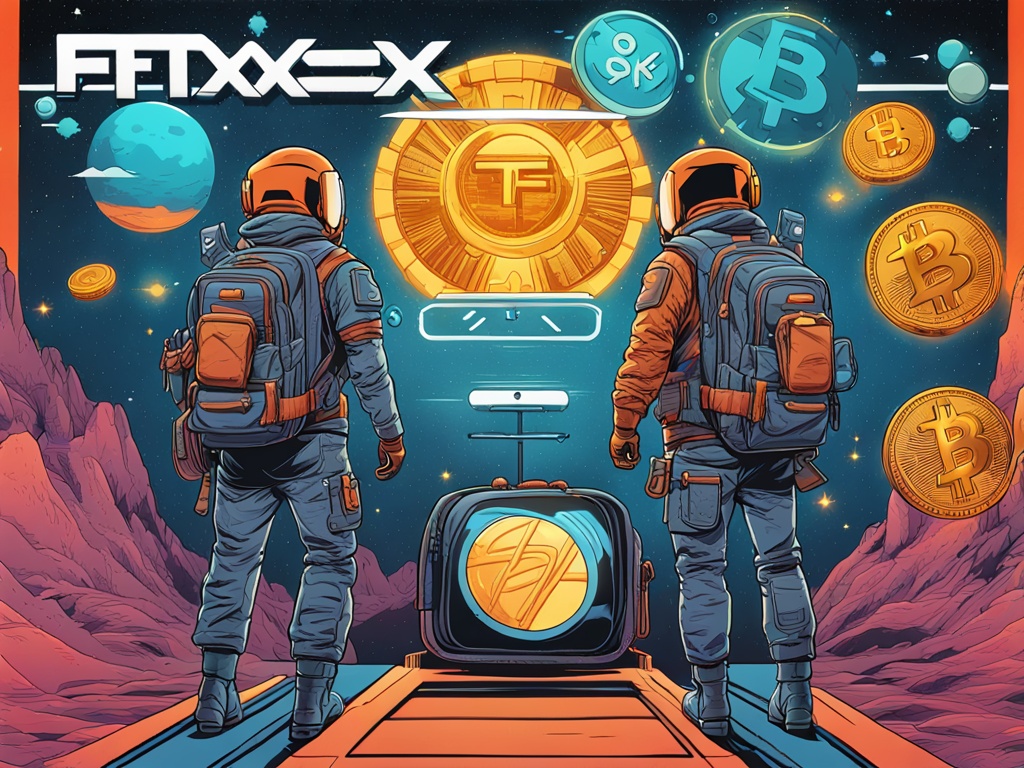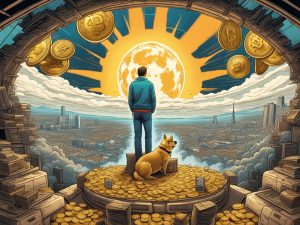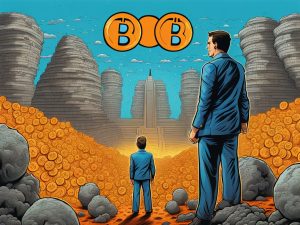The $40 Billion Lesson: What the Terra Collapse Means for Crypto Investors
Imagine just for a second that you’ve put your hard-earned cash into something called Terra, dreaming about the kind of financial freedom that many talk about in the crypto space. You wake up one day, look at your investment, and BAM—it’s as if a digital hurricane just wiped it all away. That’s what happened when the Terra ecosystem, led by the now-disgraced Do Kwon, collapsed. This is not just a story about numbers; it’s about real people, real money, and the harsh lessons we need to learn to navigate the tumultuous waters of cryptocurrency investing.
Key Takeaways
- Kwon’s fraud allegedly impacted over 1 million investors.
- Terra’s ecosystem was built around LUNA and the algorithmic stablecoin UST.
- Criminal charges against Kwon include fraud and conspiracy.
- The collapse of Terra directly preceded the infamous FTX bankruptcy.
- Both Terra and FTX showcased the risks in the crypto market.
Now, let’s dive into how all this shakes up our perception of the crypto market and what it means for all of us looking to invest.
The Fallout from the Terra Collapse
So, here’s the deal: Terra was like a rocket ship that turned out to be a paper airplane. It rapidly morphed from being one of the hottest digital assets to dust, resulting in losses that are now estimated to exceed $40 billion. The mess has left many investors reeling, and court documents suggest there could be over 1 million victims. Just take a moment to think about that—those are not just numbers; they represent individuals and families who believed in the dream of decentralized finance.
Reports indicate that this wasn’t just some market adjustment; allegations say Kwon misled investors into believing the platform was robust when it was, in reality, cobbled together. This has led to a trial of Kwon, who—surprise, surprise—pleaded not guilty to multiple fraud charges. It’s a sobering reminder that in the world of crypto, trust doesn’t come free; it has a steep price tag, often paid in the form of lost investments.
Why We Should Care
This whole scenario is more than just a tragic drama playing out in the courts. It serves as a substantial wake-up call for potential investors. It underscores an essential truth: the crypto market is volatile, and scams can come from seemingly established projects, not just from the shady corners of the internet. With the dramatic swings and downward spirals, it’s critical to approach investing in cryptocurrency with a well-researched strategy.
So, what can you do practically to protect yourself? Here are some tips:
-
Do Your Research: Always look beyond the flashy marketing. Study a project’s white paper, understand the team behind it, and scrutinize community feedback on forums.
-
Diversify Your Portfolio: Don’t put all your eggs in one basket. This way, if one asset goes belly-up, you’ve minimized your losses.
-
Set Realistic Expectations: Crypto can be a wild ride. Don’t expect to get rich overnight; set well-defined goals, and be prepared for market fluctuations.
-
Stay Informed: Keep an eye on the news related to the projects you’re interested in. Regulatory issues, lawsuits, or major changes in the project can significantly impact your investment.
- Consider Conservative Options: If you’re risk-averse, consider investing in established cryptocurrencies that have a proven track record, or perhaps look into reputable funds.
Emotional Impact on Investors
Witnessing a collapse like this stirs a mix of emotions—anger, betrayal, and heartbreak for those who thought they were investing in a solid project. It’s a reminder of the human element in this financial ecosystem. Not too long ago, many were exuberant about "moonshots," and suddenly, one’s investment can feel like a complete wipeout.
On a lighter note, it’s also worth laughing at the times when we felt invincible—like the heroes in movies that fly high only to find themselves overwhelmed by their own hubris. It’s a tough lesson learned, but one that many of us need right now.
Reflecting on the Future of Crypto
The Terra collapse and the scrutiny around Kwon’s actions highlight a crucial crossroads for the future of the crypto market. Will this lead to stricter regulation in the industry? Or will it reinforce the mentality of "buyer beware"?
It’s a fascinating debate unfolding as more investors flock to the space despite the risks.
In the end, I find myself reflecting on this thought: How can we ensure that the next exciting project doesn’t become another cautionary tale, while still embracing the innovation that crypto can offer?
In this fast-paced world of crypto finance, what strategies do you think would foster more responsible investing?





 By
By
 By
By
 By
By
 By
By
 By
By
 By
By